Greetings, fellow adventurers! If you’re contemplating the idea of packing your bags and starting a new chapter of life in the sun-kissed Caribbean, Grenada might have already found its way onto your radar.
And for good reason! The “Spice Isle” beckons with its pristine beaches, lush landscapes, and a warm, welcoming community. But, of course, every paradise has its quirks. In this guide, we’ll be your compass, navigating you through the enticing pros and the practical cons of living in Grenada.
As an Expat Relocation Specialist, I’ve witnessed firsthand the dreams and challenges that come with making Grenada your new home. From the vibrant culture to the unique hurdles you might encounter, we’ll delve into it all.
Natural BeautyPristine landscapes, beachesRisk of hurricanes
CommunityFriendly locals, vibrant cultureSlower pace of life, limited services
SafetySafe environmentLimited specialized services
AffordabilityLower cost of livingPrice fluctuations, availability issues
Healthcare and EducationAccess to healthcare, education optionsTuition fees, curriculum variations
Cultural ExperienceDiverse culture, English languageLearning Grenadian Creole (Patois)
By the end of this journey, you’ll be equipped with the knowledge to make an informed decision about whether Grenada is the right place for your next adventure. So, let’s set sail and explore the captivating world of living in Grenada, shall we?
Pros and Cons of Living in Grenada
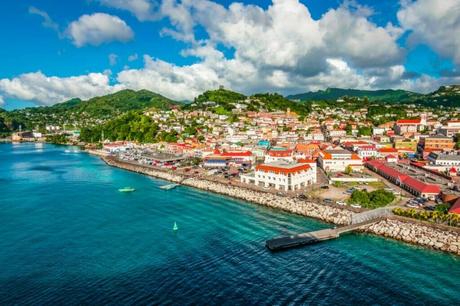
So, you’re considering the beautiful island of Grenada as your potential new home? That’s fantastic! But, like any major life decision, it’s essential to weigh the pros and cons before taking the plunge. Let’s explore the upsides and downsides of living in Grenada to help you make an informed choice.
Pros of Living in Grenada
Idyllic Caribbean Paradise: Grenada is often referred to as the “Spice Isle” due to its lush landscapes, stunning beaches, and the intoxicating scent of nutmeg and other spices in the air. Imagine waking up to the sound of waves and having pristine beaches just minutes from your doorstep.
Warm and Welcoming Community: Grenadians are known for their friendliness and hospitality. As an expat, you’ll find it easy to make friends and become part of a welcoming community that embraces diversity.
Safety and Security: Grenada boasts one of the lowest crime rates in the Caribbean. You can walk the streets with confidence, knowing that safety is a top priority.
Affordable Cost of Living: Compared to many Western countries, the cost of living in Grenada is relatively low. You can enjoy a comfortable lifestyle without breaking the bank.
Cons of Living in Grenada
Limited Access to Specialized Services: While Grenada offers the essentials, you might find limited access to specialized medical services or specific products. It’s a good idea to stock up on any essential items when available.
Hurricane Season: Located in the hurricane belt, Grenada is susceptible to hurricanes during the season. While the island is well-prepared, it’s essential to have a hurricane plan in place and ensure your home is built to withstand these storms.
Slower Pace of Life: Grenada operates on “island time,” which can be both a pro and a con. While it encourages relaxation and a laid-back lifestyle, it might also mean slower service and a more leisurely approach to appointments and deadlines.
Mosquitoes During Rainy Seasons: Grenada’s lush environment means rainy seasons, and along with them come mosquitoes. Be prepared with mosquito nets and repellents to keep these critters at bay.
Living in Grenada can offer you a tropical paradise with a warm and welcoming community. However, it’s essential to consider the limited access to certain services, hurricane risk, slower pace of life, and dealing with mosquitoes during rainy seasons. By weighing these pros and cons, you can make an informed decision about whether Grenada is the right place for your next adventure.
The Appeal of Living in Grenada
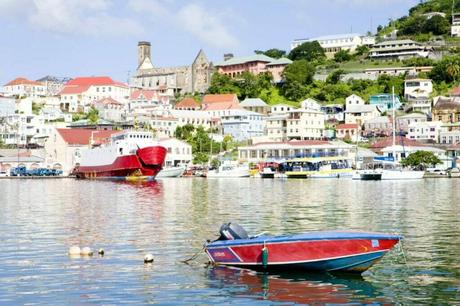
First and foremost, Grenada is a natural paradise. Imagine waking up to the soothing sound of ocean waves and being surrounded by lush tropical landscapes. Grenada’s stunning beaches, rainforests, and waterfalls make it a haven for nature lovers. Grand Anse Beach, with its powdery white sand, is a local gem, and snorkeling at the Underwater Sculpture Park is a surreal experience you can enjoy right on your doorstep.
What truly sets Grenada apart is its friendly locals. Grenadians are known for their warm and welcoming nature. As an expat, you’ll quickly find yourself striking up conversations with locals who are genuinely interested in getting to know you. It won’t be long before you’re invited to local events or a friendly game of dominoes at a rum shop.
Safety is another big plus in Grenada. It consistently ranks as one of the safest Caribbean countries. You can explore the island with peace of mind, even when taking late-night strolls through charming towns like St. George’s.
Moreover, living in Grenada won’t break the bank. Compared to many Western countries, the cost of living is refreshingly affordable. Whether it’s dining out, housing, or everyday essentials, you’ll find your wallet in a much happier state.
Grenada’s culture is a delightful blend of Caribbean, African, French, and British influences. From the vibrant festivities of Carnival to savoring a traditional “oil down” dish, you’ll have the opportunity to immerse yourself in a rich cultural tapestry.
However, it’s important to be aware of the challenges too. Access to specialized services and products can be limited, and the island operates on a slower, more relaxed pace known as “island time.” During the rainy seasons, mosquitoes can be a minor nuisance, and there’s a consideration of hurricane risk, although Grenada is well-prepared for such events.
Challenges of Life in Grenada
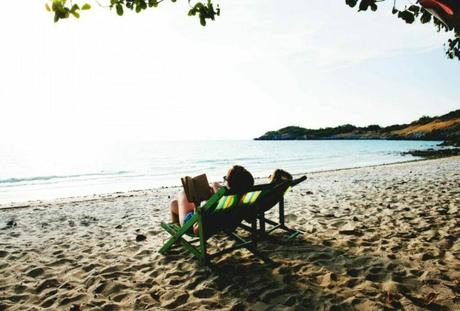
Living in Grenada offers a unique experience, but like any place, it has its share of hurdles that you should be prepared for.
Firstly, Grenada might not provide the same level of access to specialized services and specific products that you’re accustomed to in larger countries. While you can find the essentials, some items may be less readily available. To overcome this, it’s a smart move to stock up on essential items when they are accessible and plan ahead for any specific needs.
Another aspect to consider is adjusting to the relaxed pace of life known as “island time.” While this slower approach encourages a more laid-back lifestyle, it may also mean that services and punctuality operate on a different schedule than you’re used to. Patience is key in these situations, and embracing the island’s unhurried rhythm can help you adapt more easily.
Grenada’s lush environment, with its frequent rainy seasons, brings with it a common annoyance – mosquitoes. During these periods, it’s wise to be well-prepared with mosquito nets, repellents, and other protective measures to keep these buzzing critters at bay.
Lastly, Grenada’s geographical location places it in the hurricane belt, making it susceptible to hurricanes during the season. While the island is well-prepared for such events, it’s crucial to have a hurricane plan in place and ensure your home is built to withstand these natural occurrences.
Safety and Security in Grenada
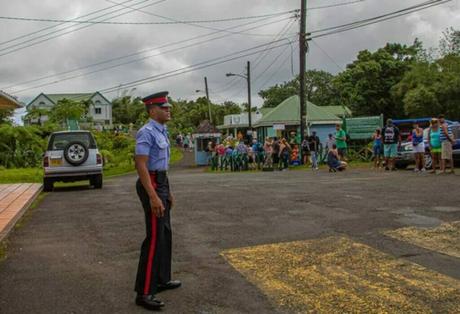
Your safety and security are top priorities when considering a move to Grenada. The good news is that Grenada is renowned for being one of the safest Caribbean countries, making it an attractive choice for expats seeking a tranquil and secure environment.
Safety First
Grenada boasts a low crime rate, especially when compared to many other Caribbean destinations. Violent crimes are rare, and the local authorities take security seriously. The close-knit communities often mean that people look out for each other, creating a sense of security and belonging.
Day-to-Day Safety
When it comes to everyday safety in Grenada, you can enjoy a relaxed and worry-free lifestyle. You’ll find it safe to walk the streets, explore the beautiful countryside, or take a leisurely stroll on the beach, even during the evening.
Practical Safety Tips
Lock Your Home: While Grenada is generally safe, it’s always wise to lock your doors and windows when you’re not at home. It’s a simple precaution that ensures your belongings stay secure.
Valuables: Avoid displaying expensive jewelry or electronics in public. Being discreet with valuables can help reduce the risk of opportunistic theft.
Beaches: While the beaches are stunning and generally safe, it’s still essential to take precautions. Don’t leave your belongings unattended, especially when swimming. Use sunscreen, wear a hat, and stay hydrated to prevent sunburn and heat-related issues.
Hurricane Preparedness: Grenada is in the hurricane belt, so it’s vital to have a hurricane plan in place and be aware of local evacuation routes and shelter locations.
Cons to Consider
Despite Grenada’s overall safety, it’s essential to be aware of the potential downsides. The island’s vulnerability to hurricanes and limited access to specialized services might require some adjustments. However, with proper planning and a proactive approach, you can enjoy a secure and fulfilling life on this beautiful Caribbean gem.
Safety and security in Grenada are generally high, offering a sense of tranquility to residents and visitors alike. While it’s crucial to remain vigilant and take standard safety precautions, the island’s reputation for safety is undoubtedly one of its many appealing factors. Embrace this serene environment, and you’ll likely find that living in Grenada is a safe and enjoyable experience.
Tips for a Smooth Move to Grenada

To make your transition as smooth as possible, here are some handy tips to consider:
1. Research, Research, Research: Start by getting to know Grenada inside out. Study the culture, climate, cost of living, and local customs. The more you understand the country, the easier it will be to adapt.
2. Visit Before You Commit: Whenever possible, visit Grenada before making the big move. Spend time exploring different areas, meeting locals, and assessing your potential new home. It’ll help you make a more informed decision.
3. Get Your Documents in Order: Ensure your passport is valid for at least six months beyond your intended stay in Grenada. Depending on your nationality, you might need a visa or residence permit. Research the specific requirements and start the application process early.
4. Housing Hunt: Start looking for accommodation well in advance. Whether you prefer renting or buying, Grenada offers a range of options, from beachfront villas to cozy apartments in the heart of St. George’s.
5. Embrace Local Culture: Grenadians are known for their warmth and friendliness. Embrace the local culture and make an effort to connect with your new neighbors. Learning a bit of the local dialect, Grenadian English, can go a long way in building relationships.
6. Budget Wisely: While Grenada is generally affordable, it’s essential to create a realistic budget. Factor in your living expenses, including housing, utilities, groceries, and transportation.
7. Stay Safe and Healthy: Keep health and safety in mind. Ensure you have adequate health insurance and are aware of any necessary vaccinations. Grenada has a good healthcare system, but it’s always wise to be prepared.
8. Hurricane Preparedness: Given Grenada’s location in the hurricane belt, it’s crucial to have a hurricane plan. Stock up on essentials, secure your home, and stay informed about weather updates during hurricane season.
9. Be Patient and Flexible: Living in Grenada often means embracing a slower pace of life known as “island time.” Be patient, stay flexible, and adapt to this relaxed lifestyle.
10. Learn from the Locals: The best advice often comes from those who have already made Grenada their home. Connect with expat communities, join online forums, and seek guidance from those who have experienced the joys and challenges of living in Grenada.
Essential Resources for Expats in Grenada

Connecting with fellow expats who have already established themselves in Grenada can be invaluable. Online forums and social media groups dedicated to expat communities are great places to seek advice, share experiences, and build a support network.
Understanding the services provided by the Grenadian government is vital. Be sure to acquaint yourself with the processes for obtaining residency and work permits, which are essential for expats. If you’re considering making Grenada your permanent home, explore the Grenada Citizenship by Investment Program as a potential pathway to citizenship.
Taking care of your health is a top priority. Research the healthcare facilities in your area, both public and private, and consider securing health insurance that covers medical expenses in Grenada.
Managing your finances is another key aspect. Opening a local bank account simplifies everyday transactions, bill payments, and accessing your funds. Grenadian banks cater to the needs of expats and offer a range of services.
If you have school-aged children, explore the educational options available, including public schools, private institutions, and international schools following various curricula. Familiarize yourself with the enrollment process and any required documentation.
Legal and immigration matters may require professional assistance. Local lawyers and immigration experts can guide you through visa applications, residency permits, and other legal requirements.
Staying informed about local news, events, and community updates is essential. Grenada has its own media outlets, including newspapers, radio stations, and online news sources, providing valuable information about the island and its happenings.
While English is the official language, Grenadian English has its unique expressions and phrases. Learning some of these can enhance your communication and integration into the local culture.
Finally, knowing the emergency contact numbers for local authorities, police, fire, and medical services is crucial. Being prepared for emergencies, particularly during hurricane season, is essential for your safety and peace of mind.
Incorporating these resources into your life in Grenada will not only simplify your day-to-day experiences but also help you navigate any challenges that may arise. Embrace this adventure with an open heart, and you’ll find that Grenada offers a wonderful blend of natural beauty, warm hospitality, and a welcoming expat community.
Must-See and Must-Do Activities in Grenada
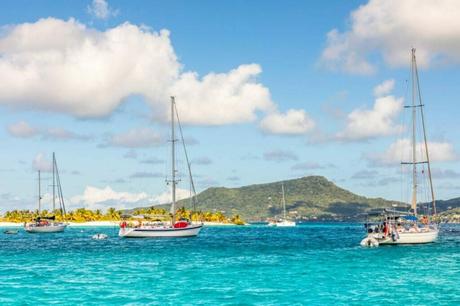
Let’s explore some of the must-see and must-do experiences that will make your time in Grenada truly unforgettable.
Beach Bliss: Grenada boasts some of the Caribbean’s most stunning beaches. Grand Anse Beach is a must-visit, with its powdery white sands and crystal-clear waters. Kick back, relax, and soak up the sun. Don’t forget to explore the underwater wonderland by snorkeling or diving in the nearby coral reefs.
Spice of Life: Known as the “Spice Isle,” Grenada is famous for its nutmeg, cinnamon, and other aromatic spices. Visit the bustling markets, like the Grenville Spice Market, to immerse yourself in the scents and flavors of the island. You can also tour spice plantations to see how these fragrant gems are cultivated.
Waterfall Adventures: Explore Grenada’s lush interior and discover its hidden waterfalls. Annandale Falls, Concord Falls, and Seven Sisters Falls are among the favorites. Hike through the rainforest, take a refreshing dip, and relish the natural beauty surrounding you.
Historical Charm: Dive into Grenada’s history with a visit to Fort George in St. George’s. The panoramic views of the harbor are breathtaking. Learn about the island’s past at the Grenada National Museum, which houses artifacts and exhibits that showcase Grenada’s rich heritage.
Sailing and Yachting: With its turquoise bays and steady trade winds, Grenada is a sailor’s paradise. You can charter a yacht or join a sailing excursion to explore the Grenadines and nearby islands. The annual Grenada Sailing Week is a must-attend event for sailing enthusiasts.
Adventure Awaits: For the thrill-seekers, Grenada offers exciting activities like zip-lining through the rainforest canopy, kayaking in the mangroves, and hiking to the summit of Mount St. Catherine, the island’s highest peak.
Festivals and Culture: Immerse yourself in Grenadian culture by attending vibrant festivals like Spicemas, the island’s Carnival celebration. Enjoy the colorful parades, lively music, and delectable cuisine that showcase Grenada’s cultural diversity.
While Grenada offers an array of incredible experiences, it’s essential to be aware of its unique challenges, such as the hurricane season and limited access to specialized services. However, with the right preparation and a positive mindset, the pros of living in Grenada, including its natural beauty, friendly locals, and rich culture, can far outweigh the cons.
Navigating the Cost of Living in Grenada

Housing in Grenada can range from affordable to luxurious, depending on your preferences. Rental prices vary, with beachfront properties and city apartments commanding higher rates. It’s advisable to start your housing search early to secure the best deal.
Utility costs typically include electricity, water, and internet. Be mindful of energy consumption, as electricity can be relatively expensive. Water is generally safe to drink from the tap, which can save on bottled water expenses.
Grenada’s markets offer fresh produce and local delicacies at reasonable prices. Cooking at home can be budget-friendly. Dining out can be affordable too, especially at local eateries known as “rum shops,” where you can savor delicious dishes without breaking the bank.
Public transportation is relatively inexpensive, with buses and shared taxis serving most areas. Owning a car can be costly due to import taxes and fuel prices. Consider your transportation needs carefully when budgeting.
Grenada has both public and private healthcare options. While public healthcare is accessible, expats often opt for private health insurance to ensure comprehensive coverage and access to private facilities.
If you have school-aged children, consider the cost of education. Grenada offers public schools, private institutions, and international schools, each with varying tuition fees. Research your options to find the best fit for your family.
Enjoying Grenada’s natural beauty is often free or inexpensive. Hiking, beach outings, and exploring waterfalls are affordable ways to stay entertained. Participating in local cultural events and festivals can also be budget-friendly.
Creating a budget tailored to your lifestyle is crucial. Factor in all your expenses and plan for unforeseen circumstances. Building an emergency fund is a wise financial move to provide peace of mind.
While the cost of living in Grenada is generally lower than in many Western countries, it’s essential to budget wisely and be mindful of your spending habits. By understanding and planning for the costs associated with living in Grenada, you can fully embrace the island’s beauty, culture, and the numerous pros it offers, while effectively managing any potential cons. With proper financial preparation, your life in Grenada can be as comfortable as it is adventurous.
Insights into Grenadian Culture

Grenada’s cultural diversity is a testament to its historical influences, including African, French, British, and East Indian heritage. This rich blend is vividly expressed in the island’s cuisine, music, and art. Don’t miss the opportunity to participate in the lively and colorful “Jab Jab” or “Spicemas” festivals, where you’ll be immersed in a world of vibrant costumes, energetic rhythms, and joyful celebrations.
One of the undeniable pros of living in Grenada is the genuine warmth and hospitality of its people. Grenadians are renowned for their friendly demeanor and open hearts. You’ll frequently encounter smiles and friendly greetings as you navigate your new surroundings. Engaging with the local community is a wonderful way to gain cultural insights and build lasting friendships.
Prepare your taste buds for a culinary adventure like no other. Grenadian cuisine is a tantalizing fusion of flavors, featuring delectable seafood dishes such as “Oil Down” and sweet delights like “nutmeg ice cream.” Exploring local markets to sample fresh produce and aromatic spices is a delightful experience. And be sure to savor a “roti” from a street vendor—a beloved Caribbean wrap filled with savory ingredients.
Grenada operates on its own unique concept of time, often referred to as “island time.” This slower pace of life can be both a pro and a con, but it’s an integral part of the culture. Embrace this relaxed lifestyle, where people take time to appreciate the moment and cherish the company of loved ones. It’s a refreshing change from the hustle and bustle of the modern world, and many expats come to cherish this aspect of Grenadian life.
Music is the heartbeat of Grenada’s culture. The island resonates with the rhythmic beats of calypso and soca music. Locals dance to these lively tunes at festivals and gatherings, and you’re encouraged to join in the fun. Take dance lessons, attend music festivals, and immerse yourself in the infectious melodies that bring Grenadian culture to life.
Religion also plays a significant role in Grenada’s cultural landscape, with a blend of Catholicism, Protestantism, and other faiths. You’ll encounter picturesque churches and hear soulful hymns that reverberate across the island. Participate in local religious events to gain insight into the spiritual side of Grenadian life.
While Grenadian culture is undoubtedly captivating, it’s important to acknowledge potential challenges, such as adjusting to the island’s slower pace and the need for flexibility. However, by embracing Grenadian culture and traditions, you’ll discover that the pros far outweigh the cons. Your time in Grenada will be marked by lasting memories, meaningful connections, and a profound appreciation for the unique charm that sets this island apart.
Practical Considerations for Living in Grenada
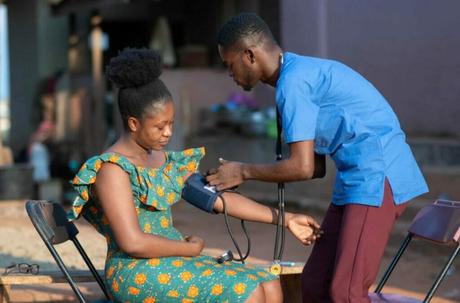
While the allure of this Caribbean gem is undeniable, practical considerations will help you navigate the pros and cons of living in Grenada effectively.
Legal and Administrative Essentials
Residency and Visas: Before you embark on your Grenadian journey, sorting out your legal status is paramount. Depending on your purpose for moving, you may need a work permit, student visa, or residency permit. Seek guidance from Grenadian immigration authorities or an expat advisor to navigate this process seamlessly.
Healthcare and Education: Taking care of your family’s well-being and education is vital. Explore Grenada’s healthcare options, both public and private, and consider private health insurance for comprehensive coverage. Additionally, delve into the island’s education landscape, which offers public schools, private institutions, and international schools. Understanding tuition fees and curricula variations is crucial for your family’s future.
Financial Planning and Preparedness
Cost of Living and Banking: Managing your finances effectively in Grenada is key. Understand the cost of living, encompassing housing, utilities, groceries, transportation, and entertainment, and tailor your budget accordingly. Additionally, simplify your financial transactions by opening a local bank account, utilizing Grenada’s stable banking system, and accessing online banking services.
Hurricane Preparedness: Living in a hurricane-prone region means preparedness is non-negotiable. Invest in hurricane-resistant housing, safeguard essential documents, and establish a robust emergency plan. Being ready for hurricane season, spanning from June to November, ensures your safety and peace of mind..
Practical Living and Embracing the Culture
Driving and Transportation: Getting around Grenada requires understanding its unique driving norms, with vehicles on the left side of the road. If you plan to drive, obtain a local driver’s license for a hassle-free experience. Alternatively, explore the affordable and accessible public transportation options, including buses and shared taxis, which serve most areas.
Language and Lifestyle: While English is Grenada’s official language, immersing yourself in the local culture and picking up basic Grenadian Creole (Patois) phrases can enrich your experience and facilitate connections with locals. Embrace Grenada’s “island time” lifestyle, characterized by a relaxed pace, flexibility in scheduling, and a welcoming community.
Conclusion: Living in Grenada Pros and Cons
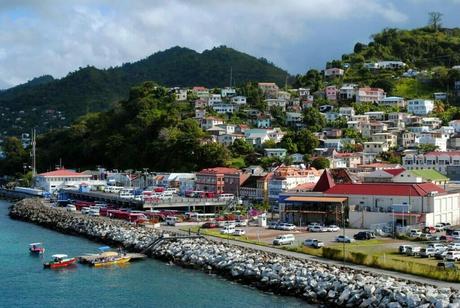
In the realm of expat life, the allure of Grenada’s stunning landscapes, friendly locals, and unique cultural tapestry is undeniable. It’s a destination that promises adventure, relaxation, and a chance to embrace a slower, sun-drenched lifestyle.
However, as our journey through the pros and cons of living in Grenada has shown, no place is without its challenges. From adapting to “island time” to preparing for hurricane seasons, understanding these practical considerations is vital.
As your Expat Relocation Specialist, my hope is that this guide has provided you with valuable insights to help you make an informed decision about whether Grenada is the perfect fit for your next chapter. Ultimately, living in Grenada is an adventure waiting to be embraced, with its unique blend of pros and cons that will shape your life in this Caribbean gem. So, should you decide to embark on this exciting journey, may it be filled with the beauty, warmth, and opportunities that Grenada has to offer.
FAQ
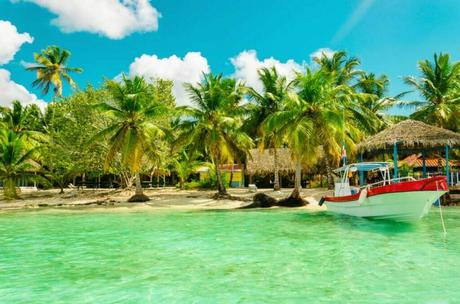
Is Grenada a Good Place to Live?
Grenada offers an appealing blend of natural beauty, safety, and affordability, making it an enticing destination for many. With pristine beaches, friendly locals, and a lower cost of living compared to Western countries, it’s a paradise for those seeking a unique Caribbean lifestyle.
What are the Cons of Living in Grenada?
Challenges in Grenada include limited access to specialized services, a slower pace of life, and the risk of hurricanes in the hurricane-prone region. Additionally, mosquitoes during rainy seasons can be a minor annoyance, and certain goods may have price fluctuations and availability issues.
What are the Advantages of Living in Grenada?
Living in Grenada offers the allure of a tropical paradise, a welcoming community, safety, affordability, and cultural richness. Its natural beauty, warm hospitality, and idyllic beaches create an extraordinary living experience, making it an attractive choice for many expats.

